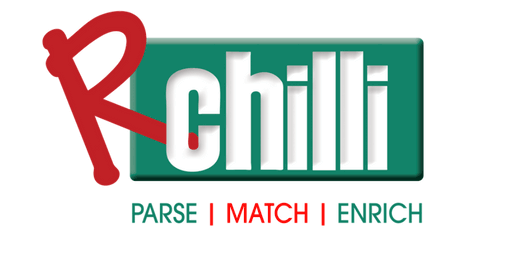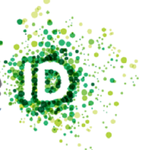Description

RChilli

Tomigo
Comprehensive Overview: RChilli vs Tomigo
RChilli and Tomigo are both companies that provide solutions geared towards recruitment and human resources, but they serve slightly different functions and target markets. Here’s a comprehensive overview of each, followed by a comparison.
RChilli
a) Primary Functions and Target Markets:
- Primary Functions: RChilli specializes in CV/Resume parsing, semantic matching, and data enrichment services. Their technology captures, enriches, and manages resume and job data, streamlining the recruitment process by automating data extraction and structuring it in a more usable format.
- Target Markets: RChilli primarily targets recruitment agencies, HR tech companies, startups, and large enterprises that require sophisticated parsing solutions to handle large volumes of resumes efficiently. They cater to a global market, serving clients from various industries including IT, healthcare, and education.
b) Market Share and User Base:
- RChilli is recognized globally with a strong presence in the HR technology market. While specific market share details aren't always public, RChilli is considered one of the leaders in the resume parsing segment, serving thousands of clients and parsing millions of resumes monthly.
c) Key Differentiating Factors:
- Technology: RChilli is known for its advanced parsing algorithms and comprehensive data fields, providing high accuracy and extraction of detailed resume data.
- Integration Capabilities: The company offers seamless integration with various Applicant Tracking Systems (ATS) and HR platforms.
- Industry Experience: With years in the industry, RChilli has a proven track record and substantial expertise in resume parsing technology.
Tomigo
a) Primary Functions and Target Markets:
- Primary Functions: Tomigo is a platform specializing in employee referral programs. It provides tools that enable companies to manage and optimize their employee referral recruitment strategies, including social sharing of job openings and tracking of referral performance.
- Target Markets: Tomigo targets companies looking to enhance their recruitment via employee referrals. Their services are aimed at organizations of all sizes that want to leverage their existing workforce to fill open positions.
b) Market Share and User Base:
- Tomigo has been a significant player in the niche market of employee referral programs, but it caters to a smaller segment compared to RChilli. It primarily serves businesses interested in strengthening their referral-based recruiting, though detailed market share statistics are less widely discussed.
c) Key Differentiating Factors:
- Focus on Referral Programs: The standout feature of Tomigo is its comprehensive approach to managing and enhancing employee referrals, which can lead to quicker and more cost-effective hiring.
- User Engagement Tools: Tomigo provides user-friendly tools for employees to engage with recruitment processes, including social media integration, gamification, and real-time tracking.
- Enhanced Analytics: The platform offers robust analytics and reporting features to track the success and impact of referral campaigns.
Comparison
Market Share and Presence:
- RChilli has a broader market footprint, given its essential function in resume parsing, which is a critical component for many modern recruitment processes. It serves a larger user base spanning multiple industries.
- Tomigo, while important within its niche, caters to a more specific need, which may limit its market share relatively.
Differentiating Factors:
- Functional Differentiation: RChilli focuses on automating data extraction and management, whereas Tomigo enhances sourcing through referrals.
- Target Audience: While both target HR professionals, RChilli appeals to those needing advanced parsing technology, and Tomigo attracts companies looking to optimize recruitment efficiency through employee engagement.
In summary, both RChilli and Tomigo provide valuable recruitment solutions. RChilli is a powerhouse in resume parsing technologies, while Tomigo excels in employee referral management. Their unique specialties cater to different aspects of recruitment, ensuring they meet the varied needs of HR professionals globally.
Contact Info

Year founded :
Not Available
Not Available
Not Available
Not Available
Not Available

Year founded :
2011
Not Available
Not Available
Israel
Not Available
Feature Similarity Breakdown: RChilli, Tomigo
RChilli and Tomigo are both platforms that operate in the recruitment technology space, offering various features that streamline and enhance recruitment processes. Given their roles in the HR and recruitment industries, here's a breakdown focusing on their feature similarities and differences:
a) Core Features in Common
-
Resume Parsing:
- Both RChilli and Tomigo offer resume parsing capabilities, which allow recruiters to extract key information from resumes quickly and efficiently. This feature helps in building databases and making candidate information easily searchable.
-
Candidate Management:
- They both provide candidate management systems to help recruiters track applicants and manage the recruitment pipeline effectively.
-
Integration with ATS/HR Systems:
- Both platforms are designed to integrate with popular applicant tracking systems (ATS) and other HR management software, enabling seamless data flow and reducing manual data entry.
-
Data Analytics:
- Each platform offers data analytics features that provide insights into recruitment metrics, helping organizations optimize their hiring strategies.
b) User Interface Comparison
-
RChilli:
- RChilli’s interface focuses primarily on functionality related to parsing and data management. It offers a straightforward and utilitarian design, emphasizing ease of access to parsed data and integration options. The interface is generally more technical, catering to HR professionals looking for precise data handling and customization capabilities.
-
Tomigo:
- Tomigo has a more modern and visually engaging user interface, aimed at providing a user-friendly experience for recruiters. It often emphasizes social recruiting and community building, with features presented in a more interactive manner. Tomigo's UI is designed to appeal to users who appreciate an intuitive and visually appealing workspace, integrating social aspects into recruiting workflows.
c) Unique Features
-
RChilli:
- RChilli stands out with its extensive parsing capabilities that are multilingual, supporting parsing for resumes in different languages. It offers comprehensive taxonomy and intelligent match capabilities which can significantly enhance the accuracy of candidate-job fit.
- The platform also features advanced data sanitization and enrichment, providing solutions beyond simple parsing by enriching candidate data with advanced metrics and cleaning data sets automatically.
-
Tomigo:
- Tomigo differentiates itself with strong social recruiting features, allowing recruiters to leverage social networks effectively to find candidates. It supports the creation of referral programs, where current employees can refer candidates via the platform, incentivizing social sharing.
- Tomigo also offers a robust community building feature, which helps organizations create talent communities to engage potential candidates over time before they formally apply for positions.
In conclusion, while RChilli and Tomigo share common functionalities related to resume parsing and candidate management, their unique strengths lie in RChilli’s advanced data-centric features and Tomigo’s social and community-driven approach to recruitment. Additionally, their user interfaces reflect their core focuses, with RChilli being more technically oriented and Tomigo prioritizing a dynamic, user-friendly experience.
Features

Job Matching
Recruitment Analytics
Data Integration
Resume Parsing

User Management
Analytics and Reporting
Collaboration Tools
Best Fit Use Cases: RChilli, Tomigo
RChilli and Tomigo serve different purposes in the HR and recruitment landscape, catering to varying needs and business contexts. Here's a breakdown of their best-fit use cases:
RChilli
a) Best Choice for Types of Businesses or Projects:
-
Large Enterprises: Companies with a high volume of applicants benefit from RChilli’s advanced resume parsing, data extraction, and integration capabilities. Organizations looking to automate recruitment processes can save time and resources by implementing RChilli for efficient data handling.
-
HR Software Providers: Companies developing applicant tracking systems (ATS) or HR management solutions often use RChilli to enhance their platforms. By integrating RChilli's functionalities, these providers can offer more robust features like resume parsing and data enrichment.
-
Staffing Agencies: Agencies managing vast numbers of resumes benefit from RChilli’s ability to quickly parse and classify candidate data. This is ideal for maintaining an organized database and expediting the candidate matching process.
d) Industry Verticals and Company Sizes:
- Tech and IT: Due to the technical nature of job requirements, tech companies leverage RChilli for accurate extraction of skills and experience from resumes.
- Healthcare and Education: Industries with specific credentialing and certification needs use RChilli for verifying and organizing candidate qualifications.
- RChilli caters to medium-to-large companies where the volume of applicants can overwhelm manual processes.
Tomigo
b) Preferred Option Scenarios:
-
SMEs and Startups: Smaller businesses or startups aiming to leverage social media for recruitment find Tomigo useful for its social recruiting features. It enables these companies to reach passive candidates more effectively.
-
Companies Emphasizing Employee Referral Programs: Tomigo is designed to boost and manage employee referrals, making it ideal for organizations looking to maximize internal networks for hiring.
-
Industries with High Turnover Rates: Sectors like retail and hospitality, which experience frequent hiring cycles, benefit from Tomigo’s ability to streamline repetitive recruiting processes.
d) Industry Verticals and Company Sizes:
- Retail and Hospitality: These sectors can utilize Tomigo’s referral system and social media integrations to fill positions quickly, crucial for maintaining service levels.
- Marketing and Creative Industries: Companies in these fields can take advantage of Tomigo’s ability to target niche talent pools through social recruitment.
- Tomigo primarily targets small to medium-sized enterprises, particularly those wanting to optimize recruitment via social channels and leverage current employee networks.
Both RChilli and Tomigo enhance the recruitment process but serve different functions and are geared towards different business needs and structures. While RChilli is optimal for data-heavy operations requiring integration with ATS and HRMS platforms, Tomigo excels in settings where social reach and employee networks are strategic assets.
Pricing

Pricing Not Available

Pricing Not Available
Metrics History
Metrics History
Comparing undefined across companies
Conclusion & Final Verdict: RChilli vs Tomigo
To provide a conclusive analysis of RChilli and Tomigo, we will evaluate both products based on their value, pros and cons, and offer recommendations for potential users.
a) Best Overall Value
RChilli and Tomigo both offer distinct features tailored for different user needs primarily in the realm of resume/CV parsing and recruitment solutions. Determining the best overall value depends on the specific requirements of the organization or individual:
-
RChilli is often praised for its advanced parsing capabilities, accuracy, and integration options with various Applicant Tracking Systems (ATS). It is ideal for organizations that prioritize data accuracy and seamless integration.
-
Tomigo, on the other hand, tends to offer more features around social recruiting and employee referral programs, which can be beneficial for organizations looking to enhance their candidate sourcing methods.
Best Overall Value: If your primary requirement is precise parsing and integration into existing recruitment systems, RChilli offers better value. However, for organizations focusing on expanding recruitment channels through referrals and social media, Tomigo might provide greater value.
b) Pros and Cons
RChilli:
-
Pros:
- Highly accurate resume/CV parsing capabilities.
- Strong integration support with numerous ATS platforms.
- Offers multilingual parsing, which is beneficial for global recruitment efforts.
-
Cons:
- May require technical expertise for initial setup and integration.
- Primarily focused on parsing, which may limit users looking for additional sourcing features.
Tomigo:
-
Pros:
- Extensive tools for social recruiting and managing employee referrals.
- User-friendly interface that simplifies recruitment processes.
- Particularly effective for organizations looking to leverage networks for talent acquisition.
-
Cons:
- Limited parsing capabilities compared to RChilli.
- May not integrate as seamlessly into traditional ATS as RChilli.
c) Recommendations
For users deciding between RChilli and Tomigo, consider the following recommendations:
-
Assess Your Needs: Clearly define your primary recruitment goals. If parsing accuracy and ATS integration are paramount, lean towards RChilli. If social recruitment and leveraging referrals are more critical, consider Tomigo.
-
Evaluate Integration Requirements: Consider your current systems and IT capacity. RChilli requires more integration work, so ensure you have the necessary technical resources.
-
Trial Both Solutions: If possible, take advantage of trial periods or demonstrations to assess user interface, ease of use, and specific feature benefits. This can provide a clearer picture of which solution aligns with your operational workflow.
-
Budget Considerations: Compare pricing structures relative to feature sets and your specific requirements. A cost-benefit analysis might reveal hidden savings over the long term with either solution.
In conclusion, the decision between RChilli and Tomigo should be driven by your organization’s specific recruitment strategies and technological landscape. Prioritizing your needs and assessing both products against those criteria will lead you to the solution that offers the best value for your unique context.
Add to compare
Add similar companies




